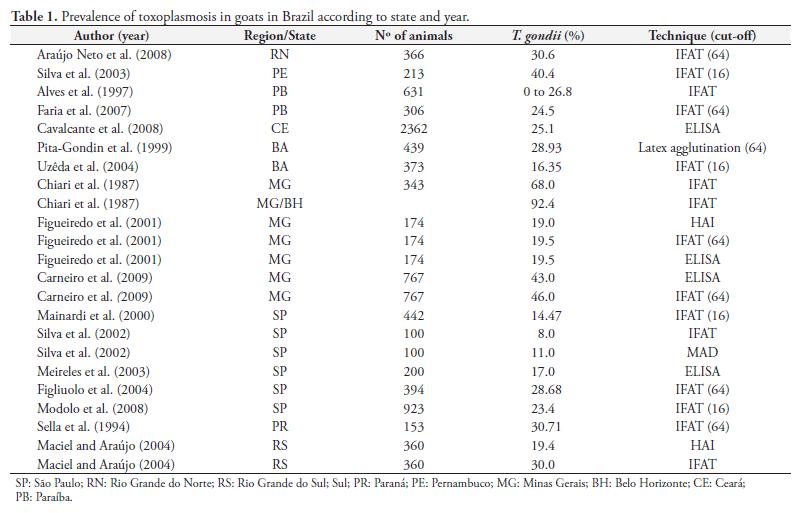Toxoplasmosis is a zoonosis caused by Toxoplasma gondii, a protozoan with wide geographical distribution and minimal parasitic specificity that affects many species of wild and domestic animals. In livestock, especially in small ruminants like goats, toxoplasmosis can cause abortion and the birth of weak animals, leading to economic losses to farmers, and is a major source of human infection. This is a seroepidemiological study of toxoplasmosis in goats in the state of Paraná, Brazil. Sera from 405 goats from the metropolitan mesoregion of Curitiba, eastern state, were tested by the enzyme-linked immunosorbent assay (ELISA) and indirect immunofluorescence antibody test (IFAT). Information on properties and goat characteristics was also collected using questionnaires. The prevalence of toxoplasmosis was 39.41 and 35.96% by ELISA and IFAT, respectively. T. gondii antibody prevalence increased with age. The risk factors for T. gondii infection in goats were: age over one year; exposure to cats, type of management and purpose of breeding. Other epidemiological factors and relevant control measures are discussed in the current study.
Toxoplasma gondii; seroepidemiology; risk factors





